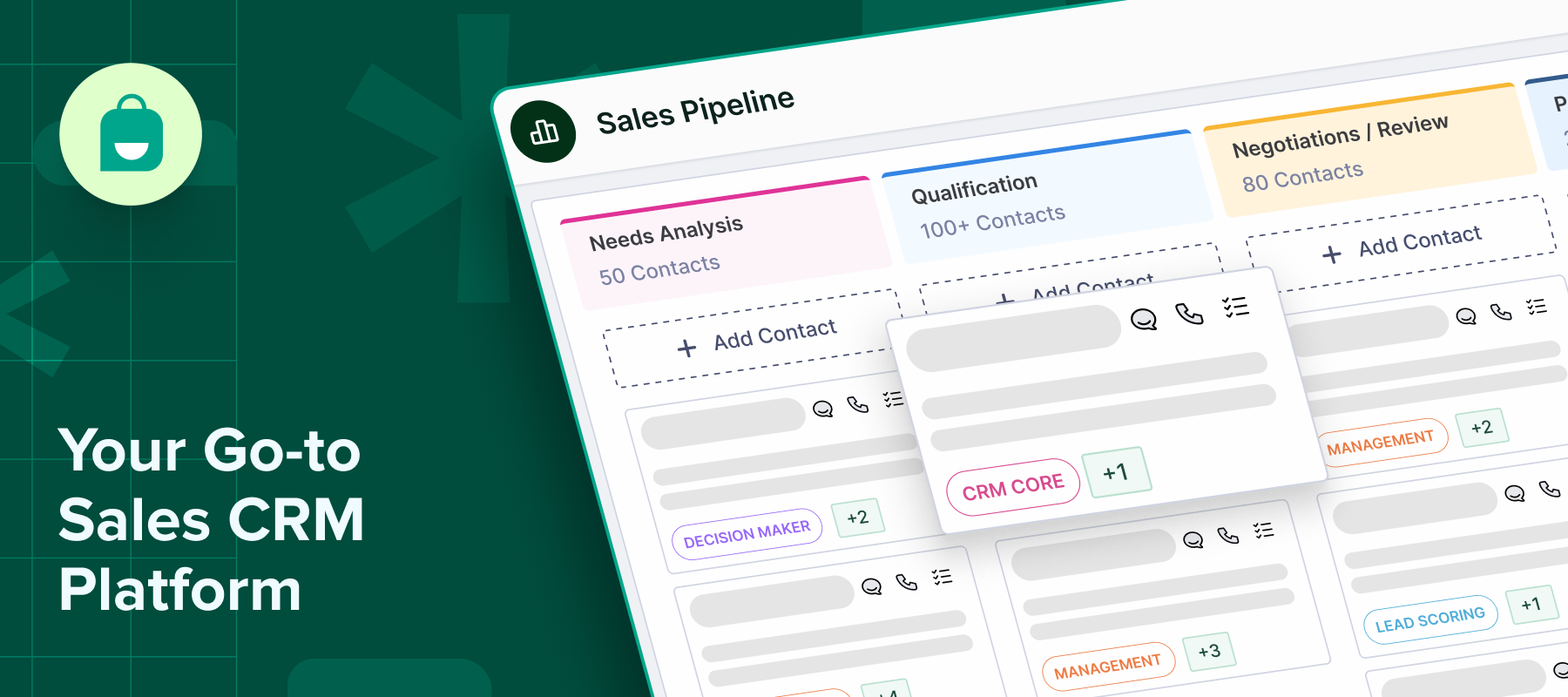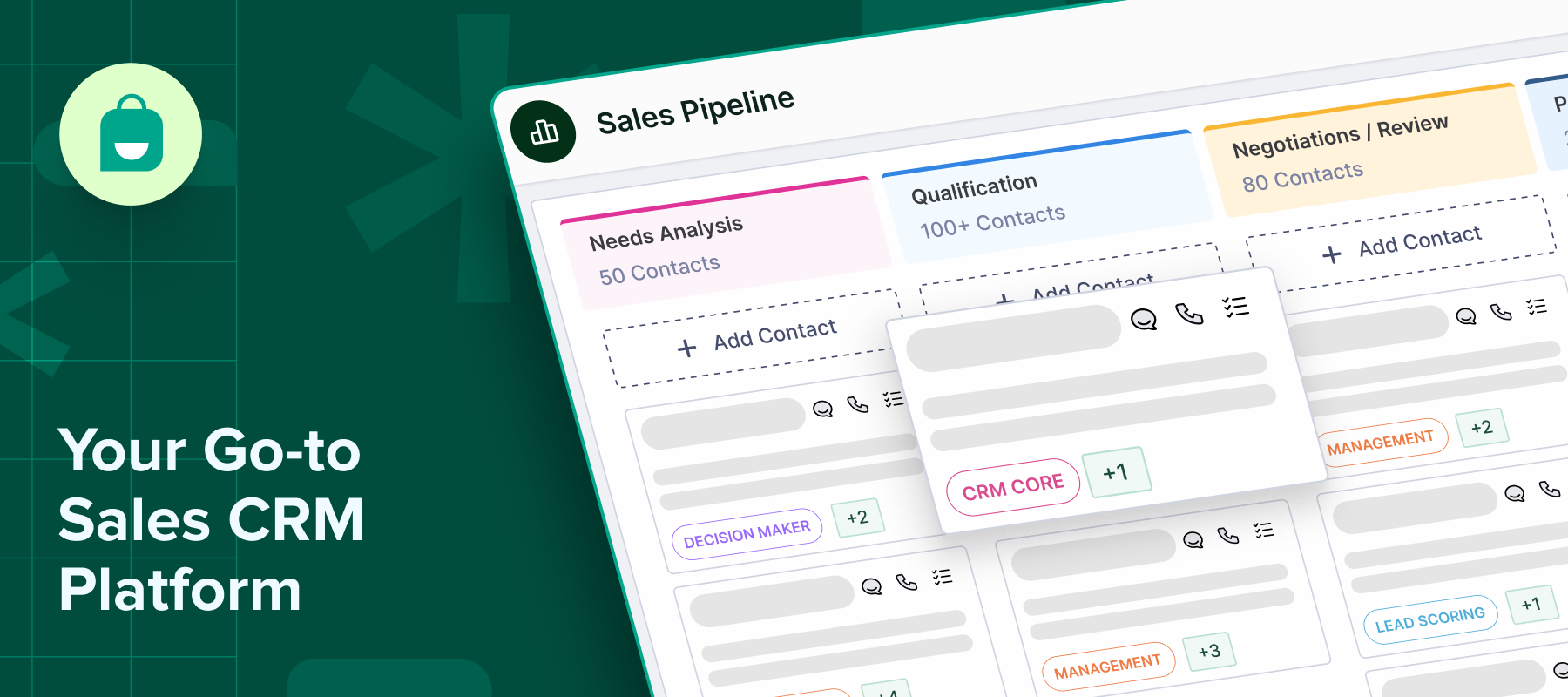In today’s fast-paced business environment, technology is reshaping how companies manage customer relationships. Automation in CRM (Customer Relationship Management) is at the forefront of this transformation, enabling businesses to streamline processes, enhance customer interactions, and boost productivity. This comprehensive guide will explore the depths of sales CRM automation, shedding light on its various facets, including sales automation, marketing automation, and more.
Understanding Automation in CRM Systems
Automation in CRM systems involves leveraging technology to automate routine tasks, which traditionally required manual input. This not only saves time but also reduces human error, thereby improving the accuracy and efficiency of customer management processes. CRM automation focuses on automating repetitive tasks such as data entry, follow-up emails, and customer service interactions, allowing teams to focus on strategic decision-making and personalized customer engagement.
The Role of Sales Automation
Sales automation is a critical component of CRM automation. By automating sales tasks, businesses can ensure that their sales processes are more efficient and consistent. Sales CRM automation tools can help manage leads, track customer interactions, and automate follow-up emails, ultimately leading to faster sales cycles and improved conversion rates. With sales automation, sales teams can focus more on building relationships and closing deals rather than getting bogged down by administrative tasks.
Marketing Automation: A Key Driver of Success
Marketing automation within CRM systems plays a vital role in enhancing a company’s marketing efforts. It involves automating tasks such as email marketing, social media postings, and campaign management. Marketing automation allows for better segmentation and targeting, enabling businesses to deliver personalized content to their audience. This not only improves customer engagement but also increases the return on investment for marketing campaigns.
The Benefits of CRM Automation
The integration of CRM automation brings numerous benefits to businesses of all sizes. Here are some of the key advantages:
-Increased Efficiency: Automating routine tasks allows teams to focus on more strategic activities, improving overall productivity.
-Enhanced Accuracy: Automation reduces the likelihood of human error, ensuring more accurate data management.
-Improved Customer Experience: By automating customer interactions, businesses can provide timely and personalized responses, enhancing customer satisfaction.
-Better Data Management: Automation in CRM systems enables better organization and storage of customer data, facilitating easier access and analysis.
Pipeline and Funnel Management Automation
Pipeline automation and funnel management automation are crucial for tracking and managing the customer journey. By automating these processes, businesses can gain insights into their sales funnels, identify bottlenecks, and optimize the customer journey. This proactive approach ensures that potential customers move smoothly through the sales funnel, leading to higher conversion rates and increased revenue.
Implementing Automation in CRM: Best Practices
To fully leverage the benefits of CRM automation, businesses should follow best practices during implementation:
-Define Clear Objectives: Understand what you aim to achieve with CRM automation and set measurable goals.
-Select the Right Tools: Choose CRM systems and tools that align with your business needs and objectives.
-Train Your Team: Ensure that your staff is well-trained in using CRM automation tools to maximize their potential.
-Monitor and Optimize: Continuously monitor the performance of your automated processes and make necessary adjustments to improve efficiency.
Overcoming Challenges in CRM Automation
While sales CRM automation offers significant benefits, businesses may encounter challenges during implementation. Common obstacles include resistance to change, integration issues, and data security concerns. To overcome these challenges, it is essential to communicate the benefits of automation to the team, ensure seamless integration with existing systems, and implement robust data security measures.
Conclusion
Automation in CRM systems is transforming how businesses interact with customers, making processes more efficient and interactions more meaningful. By implementing CRM automation, companies can streamline sales and marketing efforts, enhance customer satisfaction, and ultimately drive growth. Whether it’s through sales automation, marketing automation, or funnel management automation, the benefits of automation are clear. As you consider integrating or enhancing automation within your CRM strategy, remember to set clear objectives, choose the right tools, and continuously optimize your processes.
Embrace the future of customer relationship management by integrating automation into your CRM strategy. Take the first step towards revolutionizing your customer interactions today!


